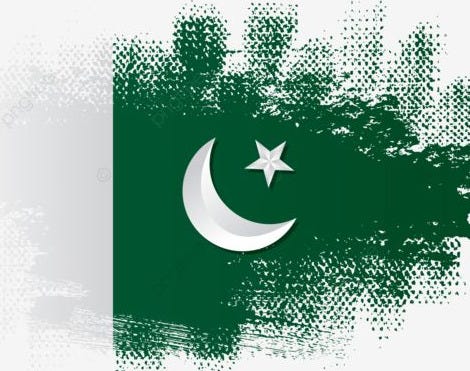The Pakistani Siege Mentality
The Country Where the People Do the Government’s Job
There was a time when people used to ask questions. They would wonder why the roads weren’t being fixed, why the water wasn’t coming, why the lights had gone out for hours. But that time is long gone. No one asks anymore. Now, people only find solutions. No one asks why the taps are dry; they just call the tanker. No one protests when electricity disappears for half the day; they just switch on the generator. The government does not provide, and instead of demanding that it does, the people have simply adjusted.
Pakistan is a country where everyone has become their own state. Where the government lets go of its responsibilities, people compensate with their own money. If the police don’t provide security, you hire a guard. If the hospitals are useless, you pay for private treatment. If public schools are failing, you enroll your kids in expensive private institutions. Over time, this way of life has become so common that people don’t even realize how absurd it is. The idea that a citizen should get clean water from the government is now seen as a joke. The thought that uninterrupted electricity is a basic right sounds like a dream.
There is no concept of collective outrage. No one makes noise. No one demands their rights. The government does not fix things because it knows that people will fix them for themselves. Karachi’s water is sold by the tanker mafia. When there is no electricity, the imported generator business flourishes. The school system has collapsed, so private academies and tuition centers have become an entire market. People pay hefty amounts to private security agencies because they do not trust the police. Every failure of the state has given birth to a private industry, where the rich survive and the poor suffer.
This system only exists for the rich.
The ruling class never experiences the problems that ordinary people do. When load-shedding hits, they are sitting in air-conditioned rooms powered by generators so massive they could run entire neighborhoods. Their houses and offices have uninterrupted gas supply while the rest of the country fights over a single cylinder. Their water is delivered in mineral bottles while entire cities are forced to buy tanker water that’s either salty or mixed with sewage. Crime is a common man's problem, but for them, private guards and police protocol ensure that no one dares to come near them.
When the poor get sick, they stand in line at government hospitals, waiting for doctors who might not even show up. When the rich get sick, they board the next flight to London or Dubai for “treatment.” When the poor have no schools, their children sit at home or attend ghost schools where teachers never arrive. When the elite want education, they send their kids to the best private institutions, or better yet, straight to the UK or US. This is why nothing changes. The ones in power do not live in the same Pakistan as everyone else.
And then, when people complain, they are told to be “grateful.” "Look, at least you have the option of a water tanker." "You can afford a UPS, many people don’t even have that." Instead of demanding solutions, we are told to appreciate the fact that we can pay for workarounds.
A new problem, a new solution.
Every time something stops working in Pakistan, it doesn’t get fixed. Instead, a new workaround is found. A new way for people to just cope.
Water crisis? No pipeline repairs, just more tanker mafias.
Gas shortages? No proper distribution, just more illegal cylinders.
Education crisis? No investment in schools, just more expensive tuition centers.
Rising street crime? No police reform, just more private security companies.
Electricity problems? No improvement in production, just more generator imports.
Instead of fixing the root problem, governments do temporary patchwork—enough to stop people from outright revolting, but never enough to actually change anything. Every election season, the same promises are repeated, the same speeches are made, and nothing happens. The people already know that whoever wins, nothing will change. The only thing that changes is the rate of the tankers, the price of the generators, and the cost of private security.
Will this country continue like this?
Pakistan’s biggest tragedy isn’t just corruption or bad governance. It’s that people have accepted all of it. People have accepted that the government is just a name. That they are on their own. It’s been so long that no one even expects the government to function anymore.
The worst part? The cycle continues. Children grow up watching their parents arrange water tankers, pay school fees they can barely afford, and struggle through endless power cuts. By the time they become adults, they don’t question it anymore either. They simply do what their parents did—call the tanker, buy the generator, pay for the guard, and move on.
This is survival over progress. This is a country where the people are forced to do the job of the state, and the state does not care.




A small feedback: If you want to write a portion in urdu, it is better to use urdu alphabets. Otherwise, it removes all the professionalism around journalism